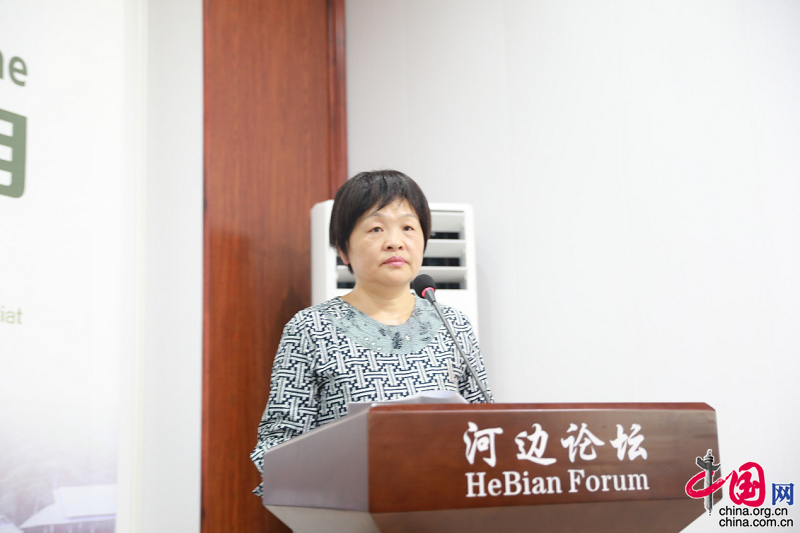Village leaders exchange program reveals secrets behind targeted poverty alleviation
P.china.org.cn by Chen Lufan,May 07, 2019 Adjust font size:
The 8th ASEAN+3 Village Leaders Exchange Program (VLEP), a poverty alleviation project initiated by China near its border with the Lao People's Democratic Republic, opened on Monday at Hebian village, Yunnan province. The program aims to build a model of cooperation for public welfare between local grassroots organizations, academic institutions and the government.

Zhang Guangping, deputy director-general of IPRCC delivers a speech at the opening ceremony in Hebian village on May 6, 2019. [Photo by China.org.cn]
China and ASEAN countries are closely linked by common interests and long-lasting friendship.The relationship between two sides is the cornerstone for the peace, stability and development of East Asia, said Zhang Guangping,deputy director-general of IPRCC.
“Our bilateral cooperation is now seeing all-round development and needs to be further promoted. To realize this goal, cooperation in poverty alleviation could be an important part,” said Zhang.
Zhang introduced that during the one-week program, delegates from ASEAN+3 countries will study the economic and social development of China's rural areas through in-depth seminars and community field visits and get first-hand information and practical experience of capacity building and skill learning.
“Through continuous interactive discussions and annual exchanges, these grassroots leaders and village officials from China, Japan, South Korea and ASEAN member states may share their experiences and make joint efforts for poverty alleviation within the region,” said Zhang.
This year’s VLEP is featured with homestay experience in revitalized Chinese border village and experiencing the culture of Yao ethnic group. It attracted 88 officials, grassroots leaders, experts and scholars from China, South Korea, and all 10 ASEAN member states, including Brunei Darussalam, Singapore, Malaysia,Thailand, Indonesia, Vietnam, Philippines, Laos, Cambodia and Myanmar, the ASEAN Secretariat and the ASEAN-China Center.
In order to learn how China uplifts its minority ethnic citizens in remote areas and develops integrated poverty governance for the local ethnic community, the delegates went on a study tour to the Manli village and the Menglun township of Mengla county, Xishuangbanna prefecture of Yunnan Province on Monday. Their schedule also includes visiting the Xishuangbanna Yaojia Rainforest Tourism Cooperative and the Xishuangbanna Tropical Botanical Garden of the Chinese Academy of Sciences, chatting with local villagers and grassroots leaders, and ruminating on the problems and solutions for rural vitalization.
The first VLEP was hosted by IPRCC in 2013 and the program has been successfully held for 7 times, including one in Malaysia in 2017. Now it has become an institutionalized annual international event of poverty reduction exchange.